"What An Odd Thing To Say": This 33-Year-Old Collects "Boundary Phrases," And I'm Studying Them All In Preparation For My Next Awkward Moment
As someone who's working on having healthier boundaries, I can tell you it doesn't always come easy. If you're anything like me, you might especially struggle with knowing how to respond on the spot. Like, what do you say to a coworker's relentless invasive questions or a relative's problematic views???

To be 100% honest, I struggle with defaulting to being passive and "nice." I almost never have a good comeback until I'm thinking it over later in the shower or in my bed at four in the morning. Sigh.
So when 33-year-old boundary coach Kami Orange's (@kami_orange) popular "Boundary Phrases" series started showing up on my For You Page, I was instantly hooked on her bite-sized and practical advice for maintaining boundaries kindly and firmly.

In this series, Kami is sharing her 40 favorite boundary phrases that she teaches to her clients so they have a script ready for the next time someone gets too personal or says something problematic. In this video, which has been viewed over 1.5 million times, she talks about the phrase, "Hmm, what an odd thing to say out loud," as a possible response to someone expressing offensive views.

In the video she explains, "Not all phrases are for all situations or for all people. In my experience working with majority white clients in the Midwest or Rocky Mountain area of the United States, about 70% of people when they're confronted with someone saying something racist, fatphobic, homophobic, just problematic in general, they just don't say anything because they don't know what to say. And so having a phrase like, 'What an odd thing to say out loud,' is better than saying nothing."
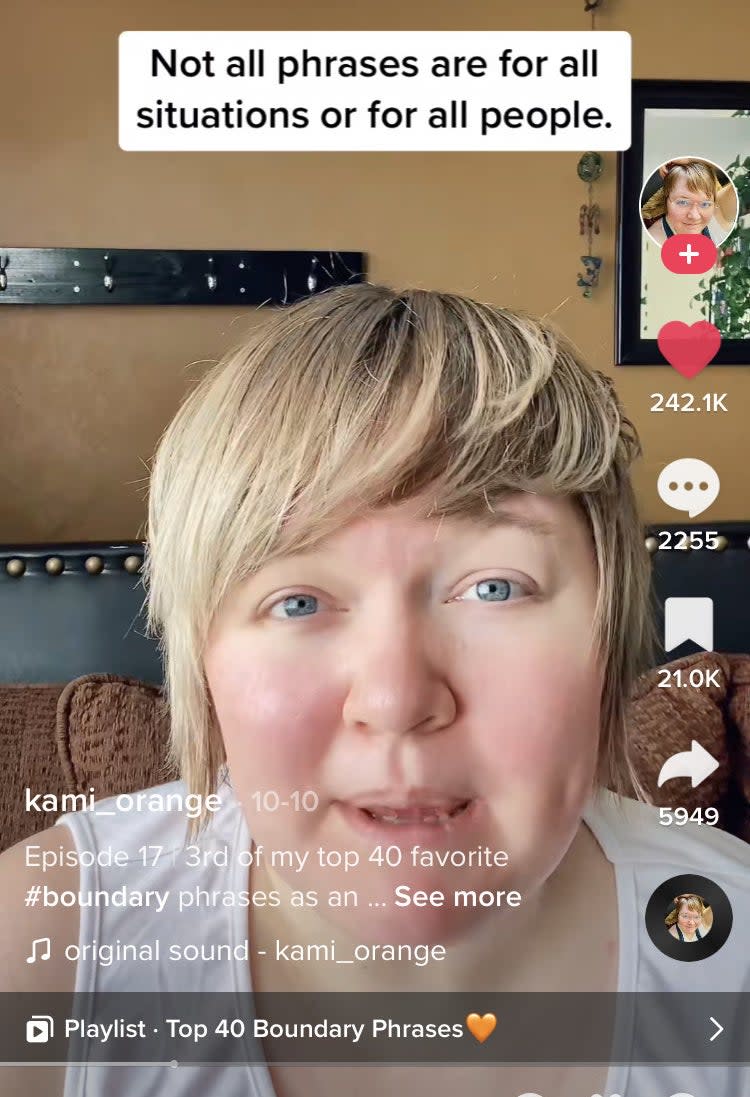
She continues, "If you're someone who's already comfortable asserting your boundaries, and your reaction to this is, like, 'That's really passive, just tell them to fuck off or whatever.' This is not the phrase for you. Like I said, not all phrases are for all people."

In another video, she shares five boundary phrases people can use to shut down overly personal questions. These phrases range from gentle responses like, "Why do you ask?" to more firm replies like, "That's a sensitive topic for me. Let's talk about something else." Other videos give tips for fending off body comments, dealing with interrupters, and more uncomfy situations.
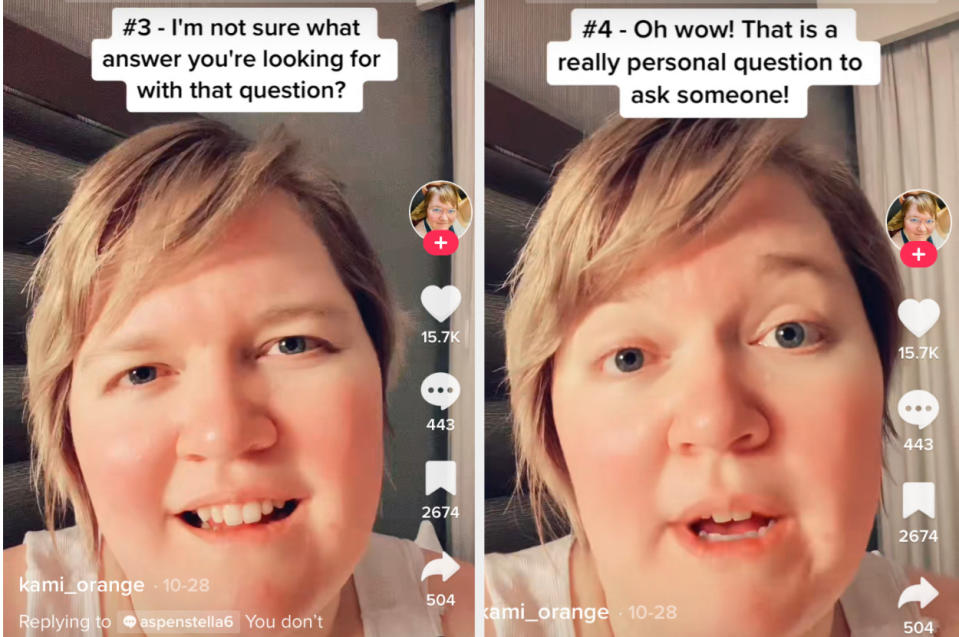
And in the comments, people are sharing their appreciation for these scripts and how they plan to use them:
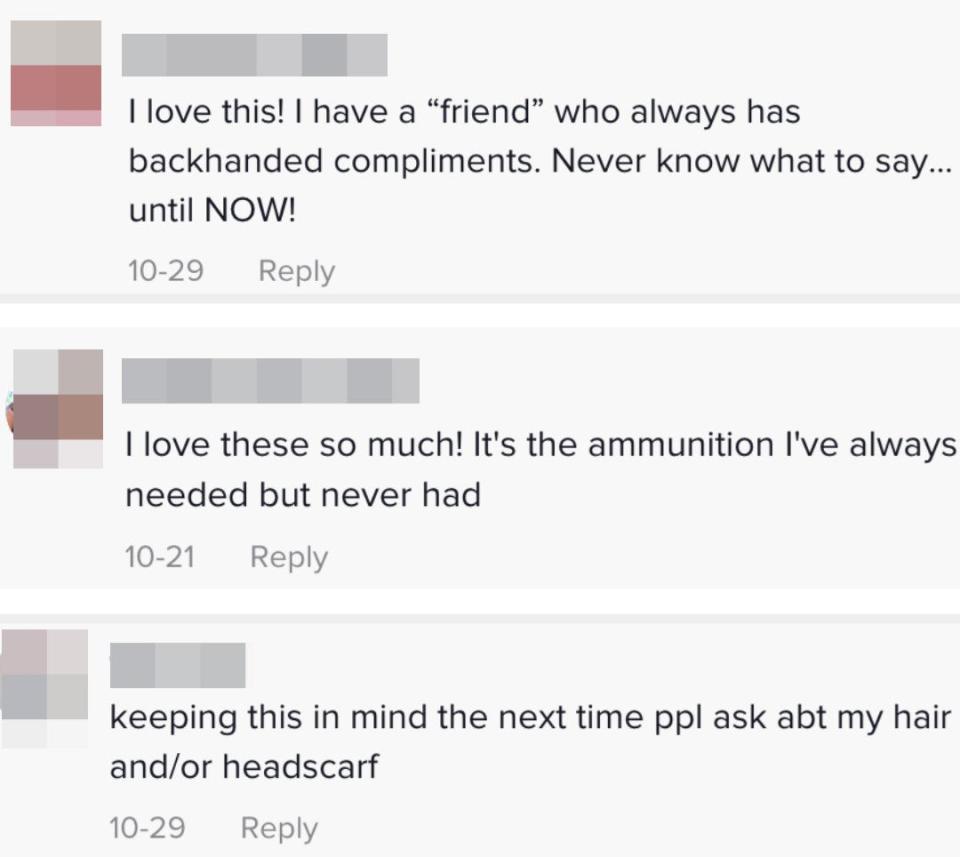
And others are sharing even more boundary phrases that they personally like to use:
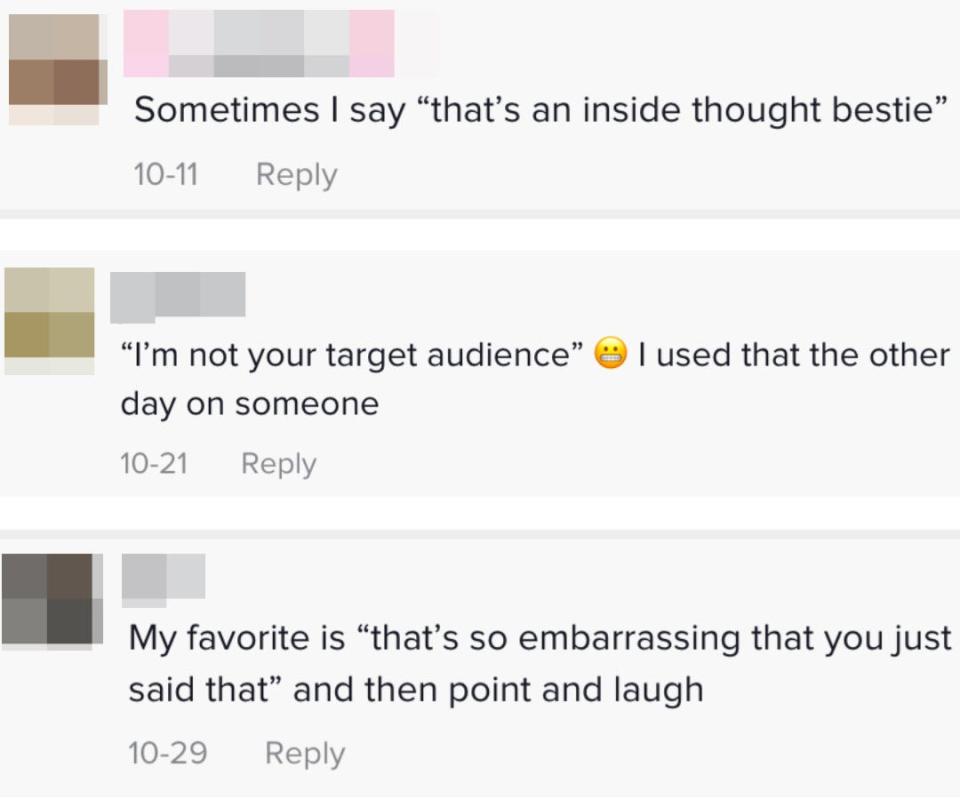
Kami told BuzzFeed, "I define a 'boundary' as a communicated expression of what is okay and what is not okay. A fence on the property line is a physical boundary. A shake of the head 'no' is a nonverbal boundary. A sentence that expresses what is okay and what is not okay is a boundary phrase."
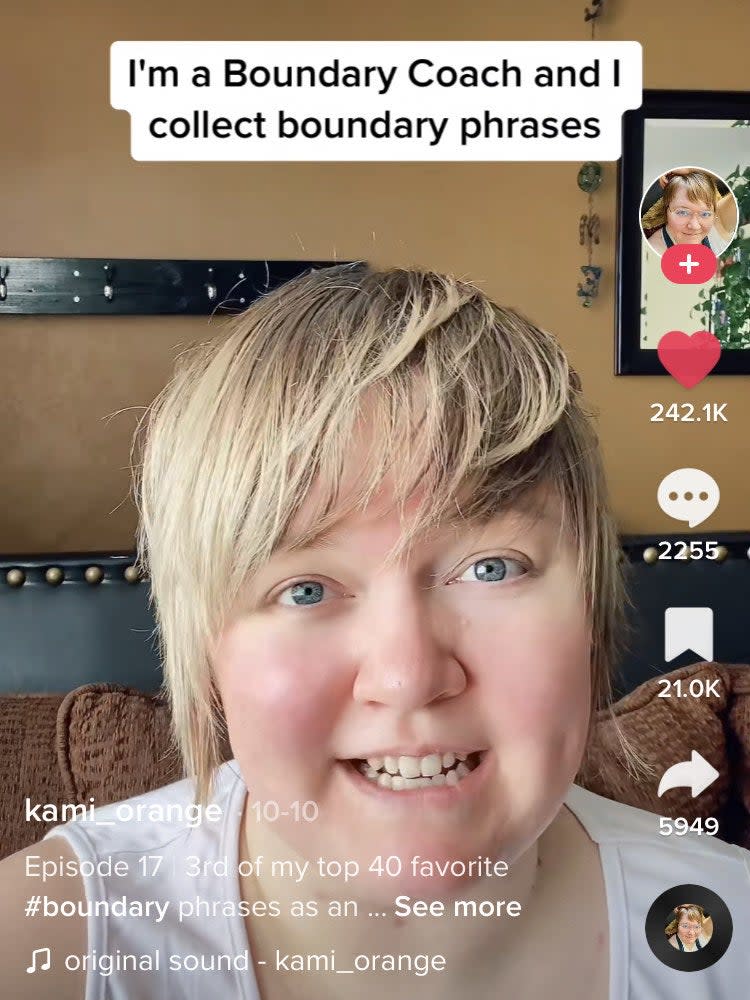
"I collect boundary phrases and currently have over 350 unique sentences. There are many ways to say something is not okay. For example, if your coworker mentions your weight, you could say, 'Please don’t comment on my body,' or 'I’m not taking feedback about my body at this time,' or 'You don’t know me well enough to say something like that to me.'"
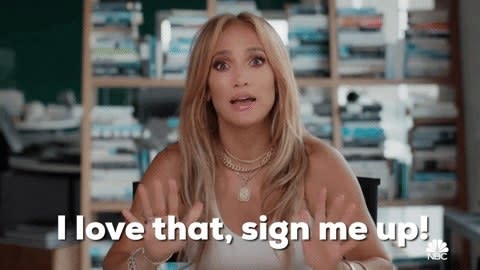
But she says that the most effective boundary phrases will vary from person to person. "Different people are comfortable with different ways of phrasing their boundaries. I encourage my clients to use whatever sounds most natural for them."

Kami also says she hears a lot from people who are worried about how others will react to hearing a boundary phrase. "I often get asked for what I call 'magic boundary words,' which are scripts to set a firm boundary that won’t make anyone upset."
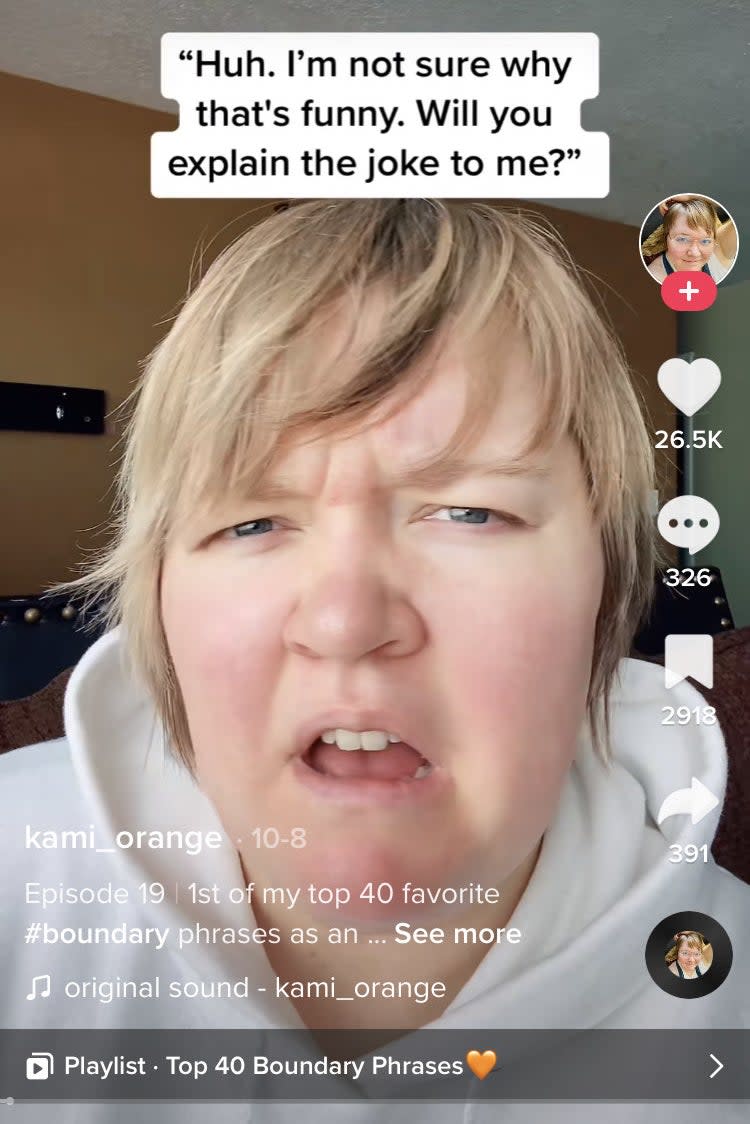
"Unfortunately, magic boundary words don’t exist! There’s no perfect way to say something to prevent other people from having feelings about it. My focus is on what I can control: communicating in the most kind and direct way possible."
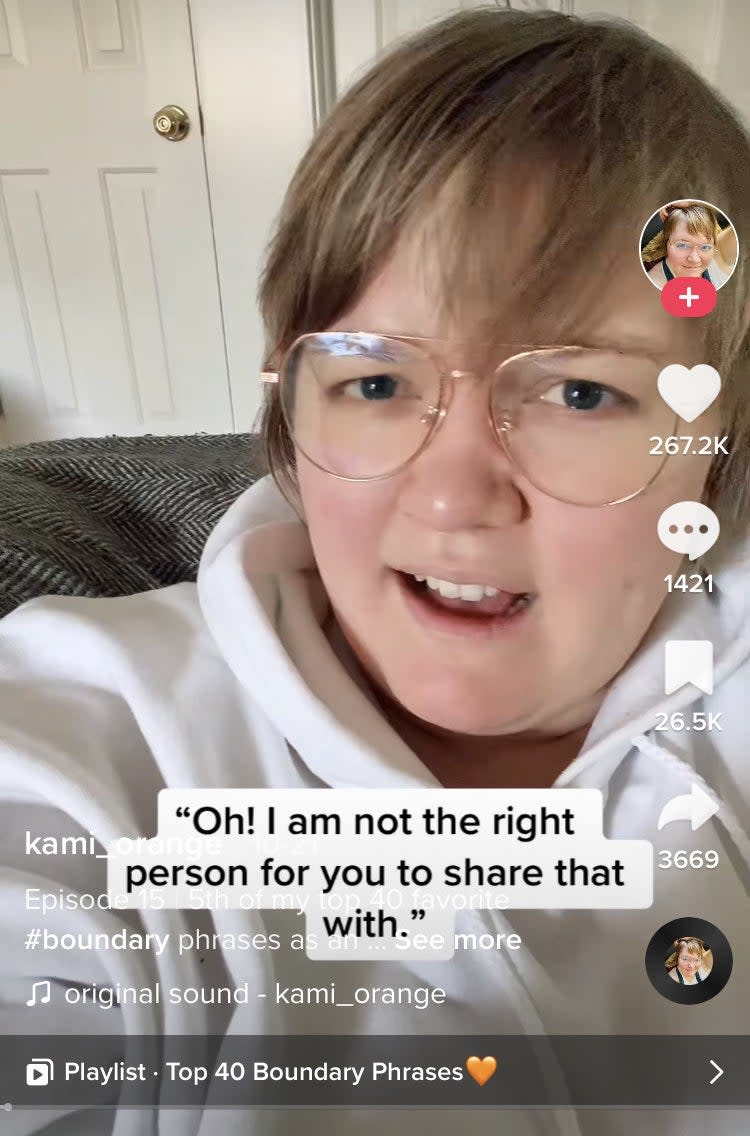
But she says that there's one phrase that she wishes people would stop saying. "One of my pet peeves is when my clients say, 'I’m bad at boundaries.' No! Please don’t say that! You’re new, uncomfortable, or need more support with your boundaries. When you say, 'I’m bad at boundaries,' it makes it harder to practice setting boundaries because humans don’t want to do stuff they’re 'bad' at!"

For more, follow Kami on TikTok.


